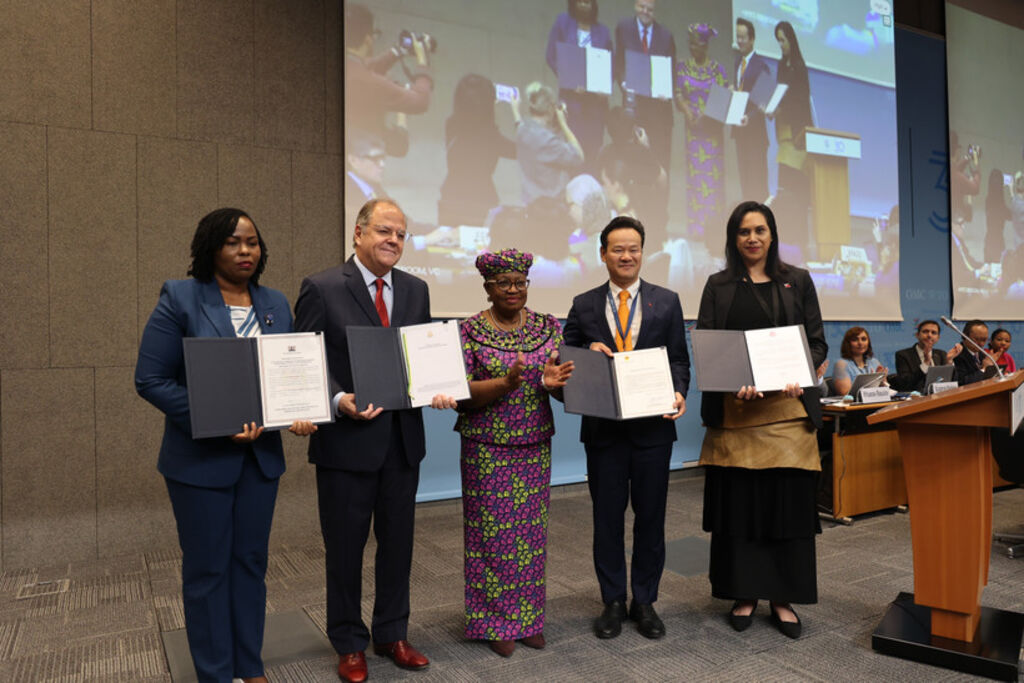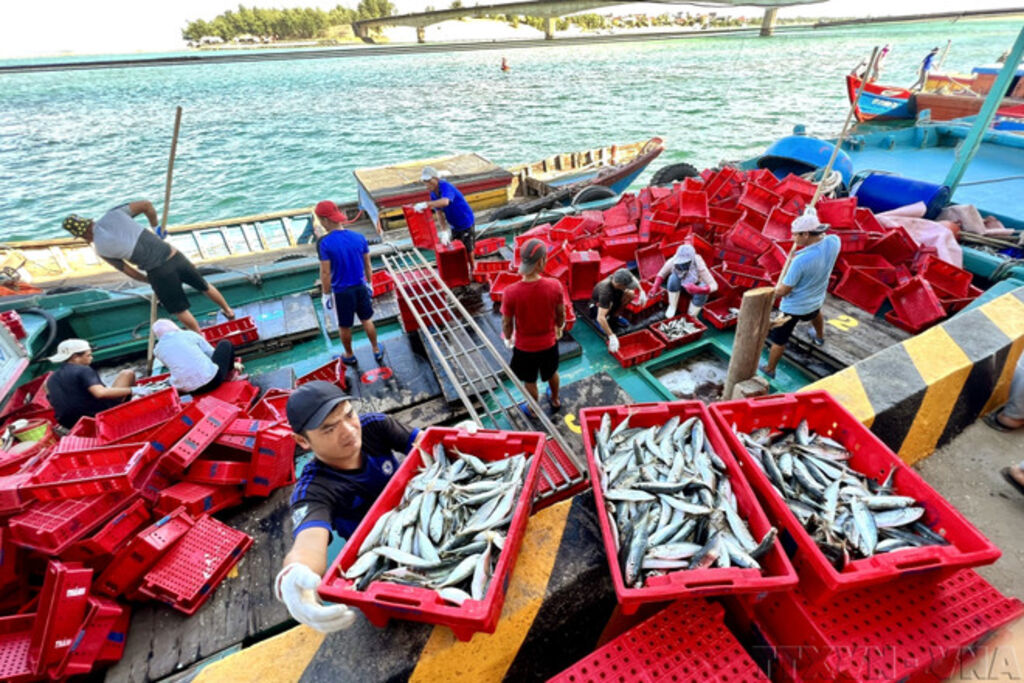 |
| WTO Director-General Ngozi Okonjo-Iweala and representatives of member countries__Photo: VNA |
Vietnam officially deposited its instrument of ratification of the Agreement on Fisheries Subsidies at the WTO General Council’s special session in Switzerland on September 15.
The Southeast Asian nation is one of the final four countries, alongside Brazil, Kenya, and Tonga, that contributed to “activating” this landmark agreement.
This event strengthened Vietnam’s reputation and position as a reliable and responsible partner in the international community, while reaffirming its strong commitment to fighting illegal, unreported, and unregulated (IUU) fishing – a key concern for the country’s seafood export.
The agreement was adopted at the WTO’s 12th Ministerial Conference (MC12) in 2022 in Geneva after more than 20 years of negotiations. It is the WTO’s first multilateral agreement focusing on marine environmental protection and sustainable development of the fisheries sector.
 |
| At Cua Tung fishing port, Quang Tri province, central Vietnam__Photo: VNA |
The document establishes binding rules that prohibit subsidies to vessels and operators engaged in IUU fishing. It also bans subsidies for fishing overexploited stocks where no measures are in place to rebuild them, as well as subsidies for unregulated fishing on the high seas.
The elimination of billions of dollars in harmful subsidies each year is key to restoring marine ecosystems, safeguarding fishery resources, and preventing the depletion of ocean wealth.
For Vietnam, the ratification of the agreement not only reaffirms its steadfast commitment to a rules-based, fair, and sustainable international trading order but also brings tangible domestic benefits. The agreement is expected to serve as a key driver for restructuring the fisheries sector toward modernity, sustainability, and science-based management.
Phasing out harmful subsidies will encourage investment in advanced fishing technologies, reduce post-harvest losses, strengthen management capacity, and meet the requirements of major export markets. In the long run, a healthy ocean is the strongest guarantee for the livelihoods of some 1.45 million fishers and coastal communities, while directly contributing to realizing the country’s goal of blue economic development.
By bringing agreement into practice, Vietnam has not only fulfilled its commitment but is also actively shaping a future where trade and sustainability go hand in hand – for a blue ocean – the shared heritage of all humanity.- (VNA/VLLF)









